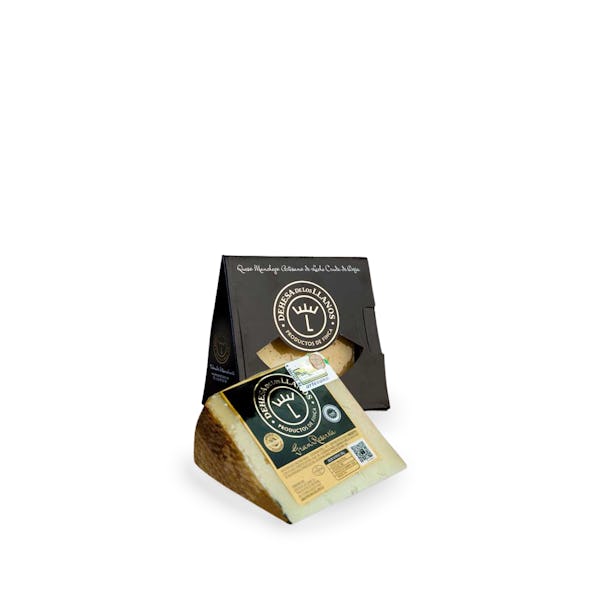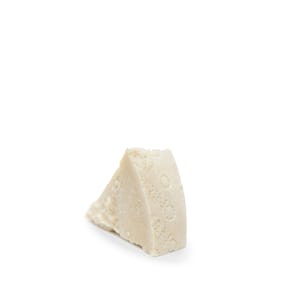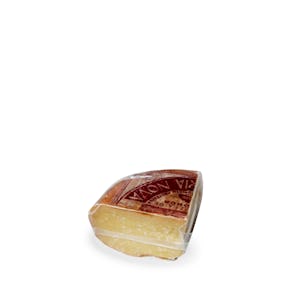
(Thursday Feb 26 , 2026)
TASTING NOTES FROM THE CURATOR
From the Manchega sheep of the La Mancha pastures of Spain straight to the creamery barely a few steps away, this semi-hard staple of Spanish cuisine has a sweetness that sharpens over nine months of aging. Past the signature inedible herringbone rind, the pâté of Gran Reserva Manchego is granular and flaky, with tiny pores that add further to the texturing. Rounded and toasty, fruit and nut flavors sit in perfect balance with piquant zesty undertones. This is accompanied by the scent of La Mancha grass and dried herbs—simply, inherently Manchego.
PREPARATION OR PAIRINGS
Reach for honey, marmalade, and nuts like almonds, hazelnuts, or walnuts when you prepare a cheeseboard with Manchego as its star. Toast up some crusty bread, arrange bowls of sundried tomatoes, figs, and olives on the side, and you cannot go wrong. Remember, Manchego is a cheese that can stand alone, so there’s no guilt in fixing yourself a little plate and enjoying its complexities without any accoutrements.
Gran Reserva Manchego goes best with aged Riojas in red or white, as the rustic earthiness of wines from this region enhances the grittiness of this cheese. Our Ramón Bilbao Reserva DOCa 2015 is a perfect choice for this. If you prefer a fruitier wine, try a rich Priorat or a refreshingly acidic Albariño. This is a beer- and whiskey-friendly cheese, too. Think stouts and porters, the darker and nuttier the better, or a beautiful aged bourbon with caramel and vanilla undertones. Go for Irish whiskeys too, ones with lovely dried fruit and hazelnut undertones.
A MULTI-AWARD-WINNING MASTERPIECE
From the land of Don Quixote, the land the Arabs originally called Al-Mansha (“dry land”), the hardy Manchega sheep produce this exquisite cheese. And the creamery at Dehesa de Los Llanos has turned tradition into an internationally acknowledged art form. They have won bronze, silver, and gold medals at the World Cheese Awards since 2007 and became the 2012 Grand Prize Winner, the acclaimed Best Cheese in the World.
Storage Instructions
Cheeses (except brined ones in jars) should be stored in the crisper or the butter drawer of a refrigerator, not on the shelves themselves. This is to help regulate their temperature and humidity levels—and prevents the formation of mold. Once opened, they should not be kept in their original packaging. Hard cheeses should ideally be wrapped in cheese paper after opening. An alternative is to wrap them tightly in parchment paper to allow them to breathe. Moisture is not as big a problem for hard cheeses as it is for other kinds, but don’t forget to write up a label with the date you first opened the package and to replace the parchment paper every time you open the cheese. It will be fine for up to one month.




